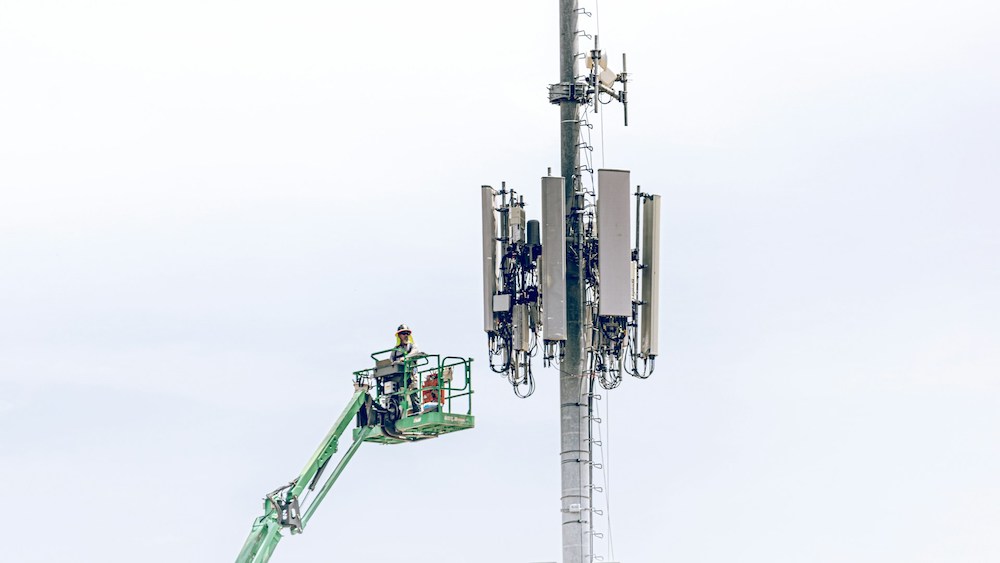
- Details
- By Chez Oxendine
- Economic Development
Poarch Band of Creek Indians tribal council member Keith Martin lives just north of the tribe’s Alabama reservation, at the far end of a dirt road with six other houses. The remote location left Martin and his relatives at the mercy of internet connectivity that disappeared for days at a time due to poor maintenance on copper lines leading to the houses, he said.
So when Martin received a cold call from wireless provider BearCom offering a solution, he jumped at the opportunity to present it to the tribal council. Fast forward two-and-a-half years and the deployment of $5.5 million in CARES Act funding later, the once connectivity-challenged northern section of the tribe’s reservation now has 100 Mbps download speeds.
“It’s like a lightbulb went on,” Martin said. “This is going to be transformational for us.”
In collaboration, the Poarch Band and BearCom erected 13 monotowers, establishing what’s effectively a tribally owned cell service covering a 28-square-mile portion with roughly 700 homes. The infrastructure also includes a telecommunications server room for streamlined deployment and maintenance.
The aim, Martin said, is to get 500 of those homes on the new network, which will help the network pay for itself. While Martin hopes to leverage the network for some eventual profit, the primary goal remains getting community members online.
“I hope it takes over for other providers in the area. We’ve got other people coming in with fiber, maybe, but that could be two or three years and also, the tribe 100 percent owns this,” Martin said. “We want it to make money, of course, but it doesn’t have to. As long as it pays for itself, it’s about serving our community.”
Poarch Band Chair and CEO Stephanie A. Bryan called the installation an “immediate response” to COVID-19 era issues the tribe faced, in particular with distance learning, telehealth, and remote work — a common refrain in Indian Country.
“Our primary objective with investing in high-speed internet solutions was to enhance our community’s capacity to learn, connect, and foster a technological future that would facilitate workforce development,” Bryan said in a statement.
Jacob McGhee, the tribe’s recreation facilities manager, attests to the transformative impact of the new network on his household. Previously, his four kids had to divy up their online schoolwork between his house and his mother’s home to manage limited bandwidth. Now, they can work on homework, stream movies and play online games together.
It’s a far cry from the McGhee family’s previous connectivity situation, which struggled with basic streaming.
“They’ve got so many games on their phones and their iPads now. It’s been huge,” McGhee said. “We’ve been blessed, and I’m glad that we’re finally getting caught up with this internet deal. It’s crazy how reliant we are on it now, but everything has to be connected, so it’s good to have it.”
The network has been placed under the management of the tribe’s utility company, Escambia County Utility Department, with “backup” from BearCom. Greg Donahe, CEO of BearCom, told Tribal Business News that the partnership with Poarch Band was a matter of “right time, right place” for the telecom provider’s involvement with the project.
“We called right when they needed us to,” Donahe said. “They were having some struggles and issues, and said timing would be of the essence.”
With that project under their belt, Donahe says BearCom is looking to other tribal partners in the wake of historic broadband funding and interest in Indian Country connectivity. Billions of dollars in state and federal funding have flowed into tribal projects that run the gamut from wireless solutions, like the one employed by BearCom, to miles-long fiber connections.
